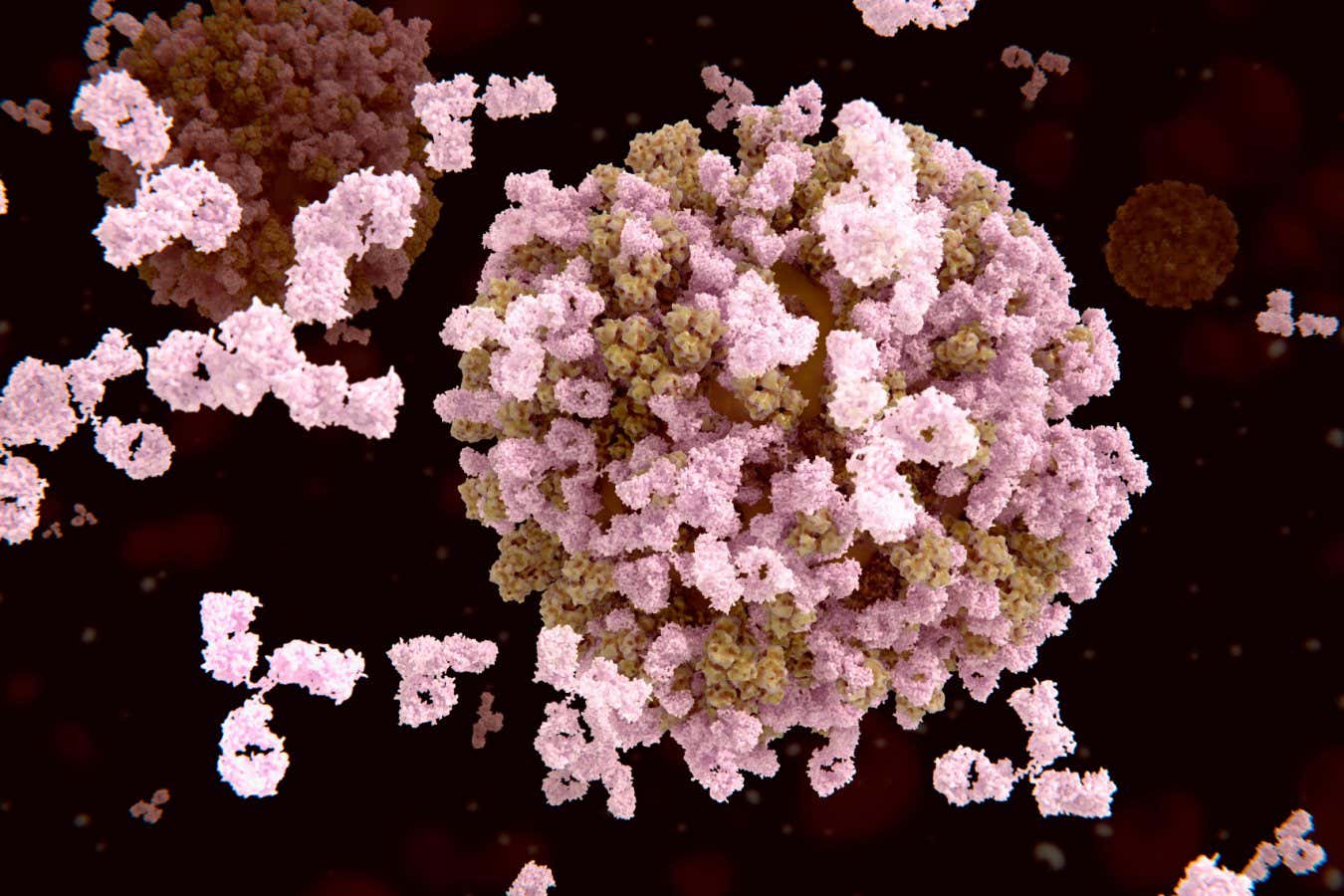A mix of three antibodies seems to protect mice against several strains of influenza and could one day be useful against seasonal flu or pandemics
By Chris Simms
10 September 2025
Illustration of antibodies attacking influenza virus particles
Science Photo Library/Alamy
A cocktail of antibodies could give us a new weapon to fight seasonal flu and new strains that cause pandemics. The mix protected mice from various strains of influenza, but hasn’t yet been tested in humans.
Most flu treatments and vaccines rely on prompting the body to make proteins called neutralising antibodies. These bind to specific strains of a virus, preventing it from infecting cells. Such medical interventions can be very effective, but can take many months to develop and may lose effectiveness if the virus mutates. This is why flu vaccines are updated seasonally and why researchers are working on a universal vaccine that would protect against all flu strains or even against all viruses.
Read more
The 5 best things you can do to boost the chance of a vaccine working
Advertisement
Silke Paust at the Jackson Laboratory in Farmington, Connecticut, and her colleagues have a different approach. They are focusing on non-neutralising antibodies, another kind of protein produced by the immune system. Researchers have largely ignored these proteins for fighting infectious diseases because they don’t prevent infection. Instead, they empower the immune system to kill the virus responsible by tagging already infected lung cells.
“We are making a therapy, not a vaccine. What we are trying to do is create a drug that you can give prophylactically or therapeutically after infection to prevent severe disease and death,” says Paust.
Paust and her colleagues focused on antibodies that would target an influenza virus protein in a region called M2e, which is essential for the virus to replicate itself and is nearly unchanged in all flu strains.
